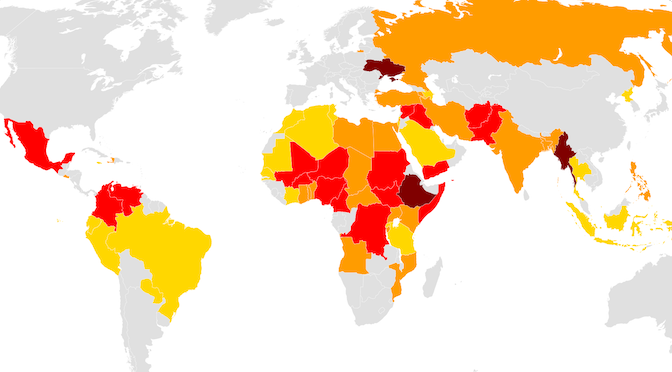I have read Tyler Smotherman’s review of my book, Greytown Is No More! I am much buoyed by the many positive passages to be found throughout its 17 pages. I wish to thank the reviewer, Tyler Smotherman, JNSLP Managing Editor Todd Huntley, and Editor-in-Chief William C. Banks for their efforts. I would like to take… Continue reading Will Soper Responds to Tyler Smotherman’s Review of “Greytown Is No More!”
Tag: War Powers
Greytown, Great Power Politics, and History’s Grey Areas
Tyler R. Smotherman reviews Will Soper’s “Greytown Is No More!” The 1854 Razing of a Central American port, the U.S. Businesses Behind Its Demise, and the Lasting Foreign Policy Legacy, which looks at the cause of Greytown’s destruction and takes a critical look at the court’s subsequent ruling in Durand v. Hollins. Smotherman praises the… Continue reading Greytown, Great Power Politics, and History’s Grey Areas
Endless War Challenges Analysis of Drone Strike Effectiveness
Whether counterterrorism drone strikes are effective is one of the major questions currently facing US policymakers. The objectives offered as justifications for these strikes are arguably vague and over-broad and therefore run the risk of taking on an endless character. David Sterman argues that “endlessness” is a hazard that has not been appropriately addressed by… Continue reading Endless War Challenges Analysis of Drone Strike Effectiveness



